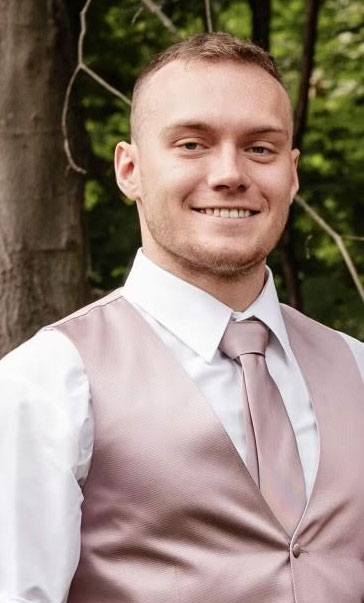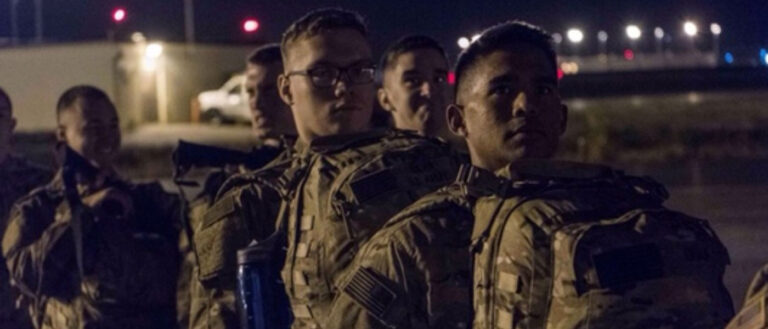Brendan Silva’s research is personal. As a United States Army veteran who served from 2016 to 2020, Silva saw firsthand the toll combat can have on soldiers’ mental health.
Now, after transfering to Case Western Reserve University in early 2023, Silva is a senior studying psychology—specifically how trauma impacts mental wellbeing. He plans to graduate in December and hopes to work with the U.S. military to better serve soldiers and veterans with mental health concerns.

Silva’s career aspirations are far different from those he had initially mapped out: 20 years in the Army with no intention of pursuing college. Even once he started considering higher education, psychology wasn’t on his mind. Instead, he thought he could pursue physical therapy because “exercise was the only field in which I felt I had something to provide.”
But deployment changed his mindset.
“Seeing the effects on those close to me prompted me to want to help them, which I was unable to do at the time,” said Silva, who is originally from nearby Chardon, Ohio. “This desire to help my friends overcome their challenges led me to do some research into psychology and what was possible within it, then I learned about the research side of psychology. I fell in love with the idea of the potential to help people whose lives might seem hopeless and impossible to overcome.”
Alongside Sarah Hope Lincoln, assistant professor of psychological sciences at the College of Arts and Sciences, Silva’s capstone project is putting that experience to work, as he seeks to explore the relationship between negative auditory hallucinations and trauma history.
Learn more about his path to CWRU and experiences on campus.
1. What do you enjoy most about psychology?
I enjoy the complexity of psychology the most. Mental disorders are incredibly complex, yet there is a pattern among them. I try to imagine the complexities of clinical psychology as a tangle of wires that need unraveling, and it’s a never-ending puzzle that needs solving.
Being a part of the field provides me with a pleasant feeling because I think I can make a positive impact on people.
2. Can you reflect on your experience in the Army?
My time in the Army is difficult to convey. There were things that I experienced that I would not trade for anything. For example, I made lifelong friends who I appreciate and learn from every time we interact. I was able to see the world and interact with a multitude of people and cultures that I would not have been exposed to otherwise.
I was forced to look at and improve myself in every way that I could through the hardships that I experienced. I had to face many of my own fears and overcome them, such as skydiving and combat.
While there were many great things that I experienced that helped me become the hardworking and dedicated individual that I am, there were things that I wish had been different. The Army has a glaring issue among the infantry through its lack of understanding for the human element in people. Mental health is something that is overlooked or looked down upon. That lack of effort to help those who need it has been the reason for many people leaving the military after their first contract, even without much knowledge of how to live outside of the military.
Overall, I am grateful for my experience in the Army, and I can confidently say that I am who I am because of it.
3. What rank and achievements did you end your military career with?
I ended my military career as a sergeant with a Parachutist Badge and a Combat Infantryman Badge that I wore to work every day. Regarding my achievements, I earned several Army Commendation medals, an Army Good Conduct Medal, an Afghanistan Campaign Medal, and several others throughout my time. My unit earned a Meritorious and a Valorous Unit Award for our actions on deployment.
4. What’s the topic of your capstone? What have you learned so far from working on that?
The topic of my capstone is to investigate the relationship between trauma and negative auditory hallucinations in individuals suffering from a psychotic disorder. Traumatic experiences are common in this population, and I have a keen interest in the effects of trauma on cognition.
Traumatic experiences can alter the way an individual thinks and can lead the person to have a negative view of the world and of themselves. Psychotic disorders such as schizophrenia have positive symptoms such as auditory hallucinations, which are disembodied voices that the individual hears and no one else can. These voices can be negative in the sense that they are self-deprecating and say terrible things to the individual. My goal is to see if there is a relationship between the presence of a traumatic event and the presence of negative auditory hallucinations.
5. Can you tell me a little bit about how experiences in the military might drive mental health issues in soldiers/veterans?
There’s a lack of compassion to keep men and women emotionally tough enough to handle what happens in combat. While it makes sense, a lot of individuals do not know how to turn off that lack of compassion and treat soldiers like people. I think that this drives a lot of soldiers to develop serious mental health issues and it’s difficult to assist those people because to say that you are having issues is extremely taboo in the military. Most individuals are suffering from something, yet nobody wants to admit it because it’s viewed as a sign of weakness. I think this mentality needs to change to keep our military strong and fit to fight. I do not believe that hiding your emotions and feelings is a sign of toughness, I think that is a sign of weakness—to avoid what is affecting you and denying your own difficulties.
6. What moment has been most transformative for you?
The most transformative experience for me was Dr. Sarah Hope Lincoln accepting me into her lab. I had less than ideal grades growing up, so when I was accepted into a prestigious school such as Case Western Reserve, I had a mild case of imposter syndrome. However Dr. Lincoln took a chance on me, which I refuse to waste. I have worked hard at every task that she has given me to improve my skills and knowledge of research in psychology. I have learned a great deal from her and her graduate students Madeline and Jill, and especially from Elyssa who has become something of a mentor to me.

